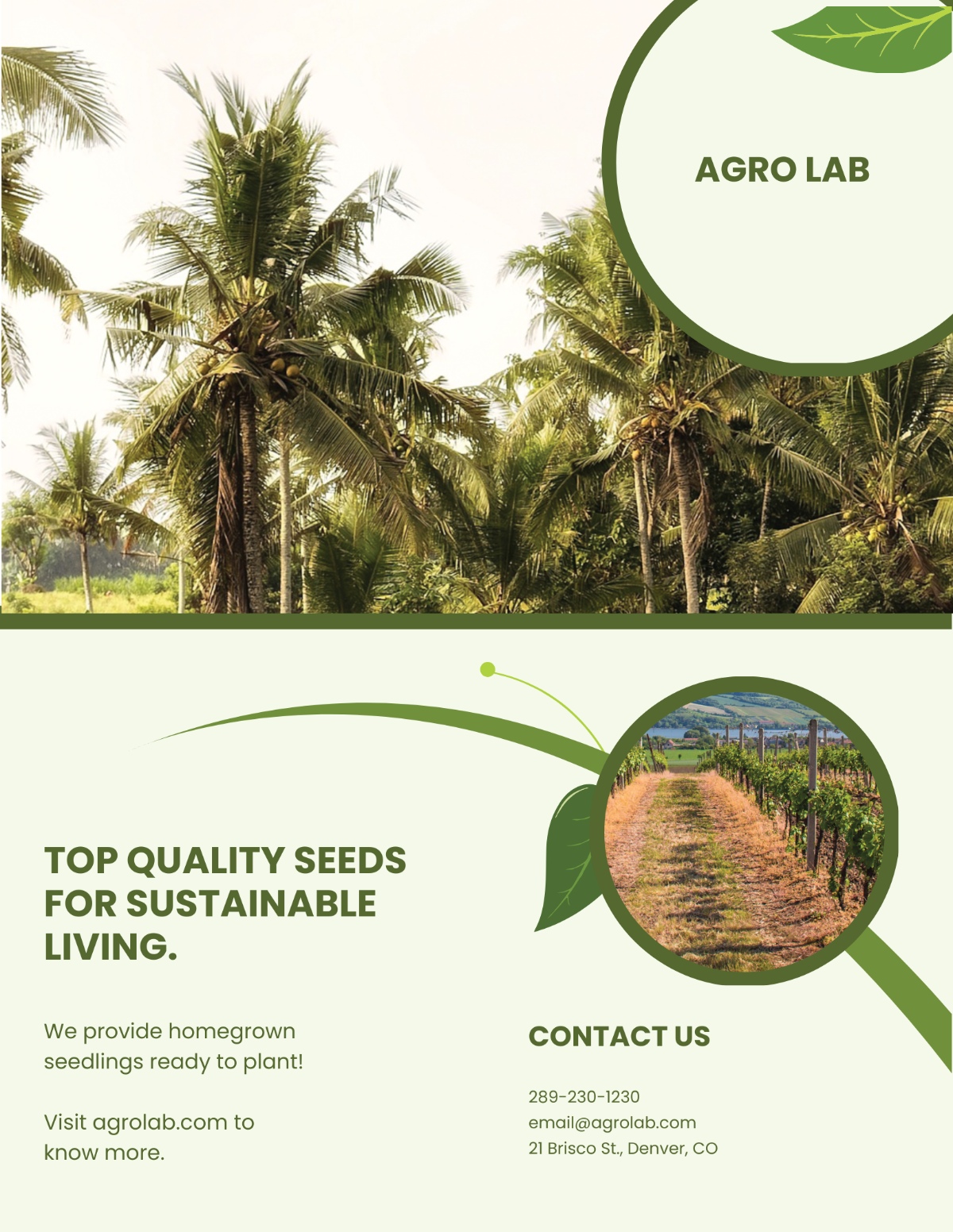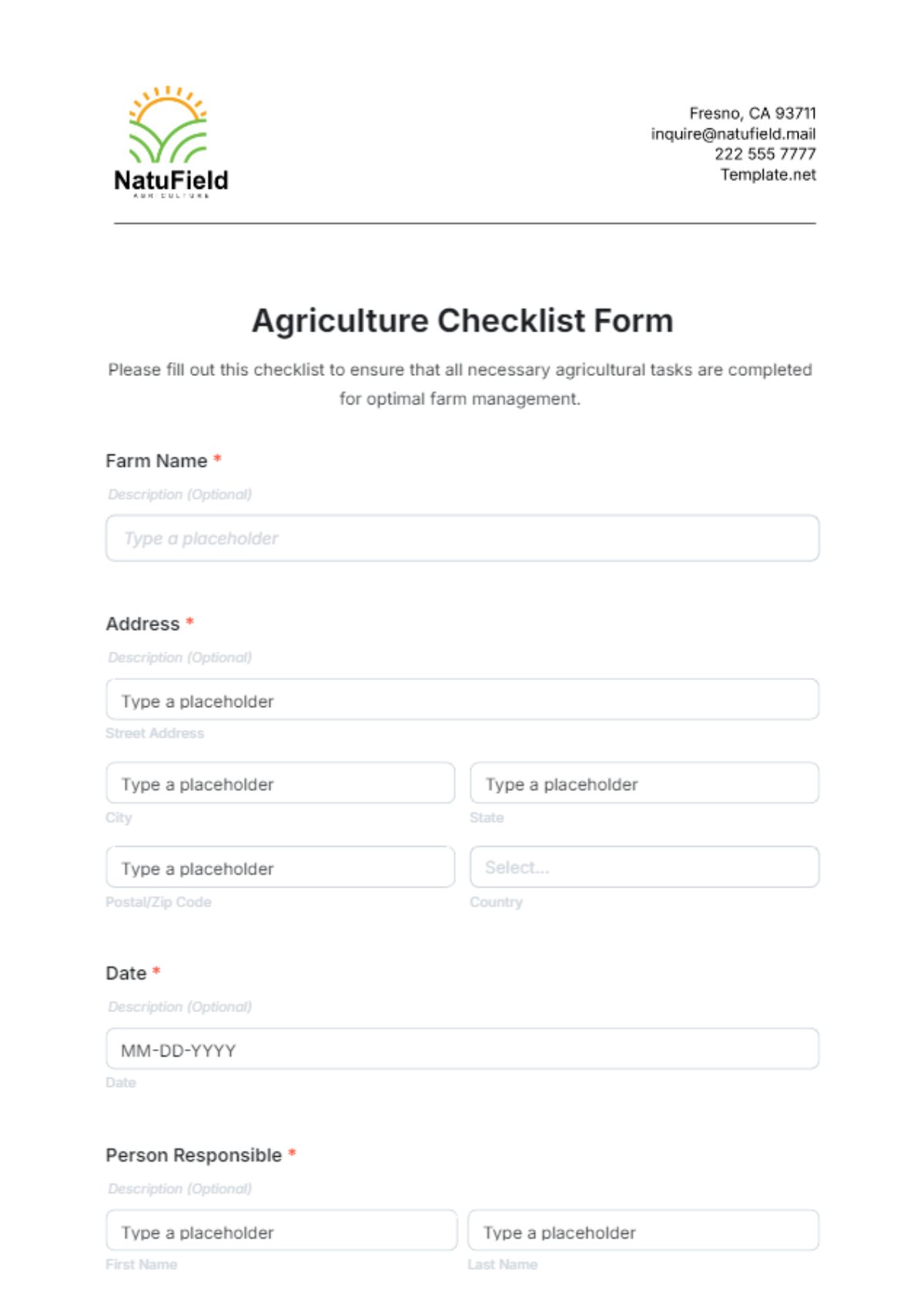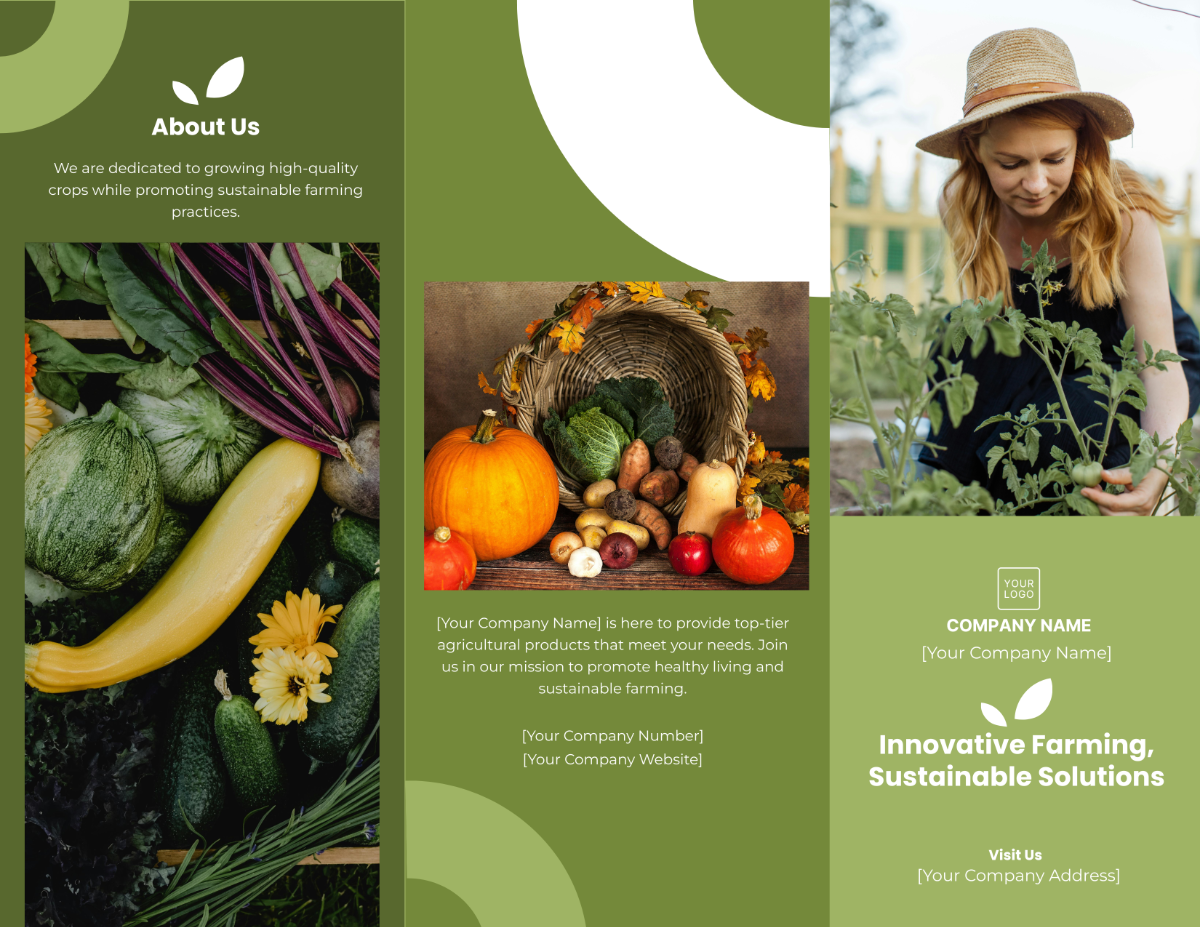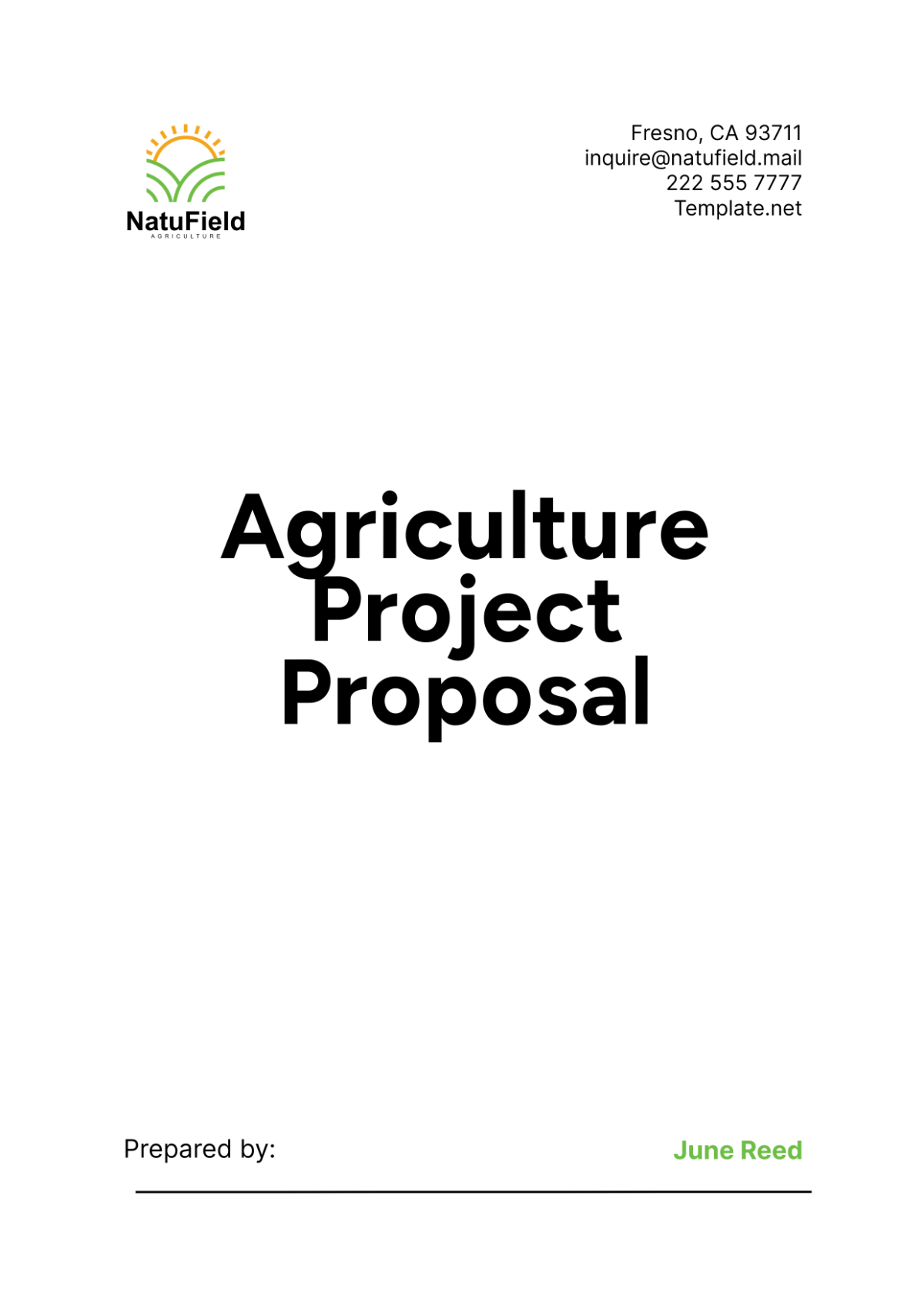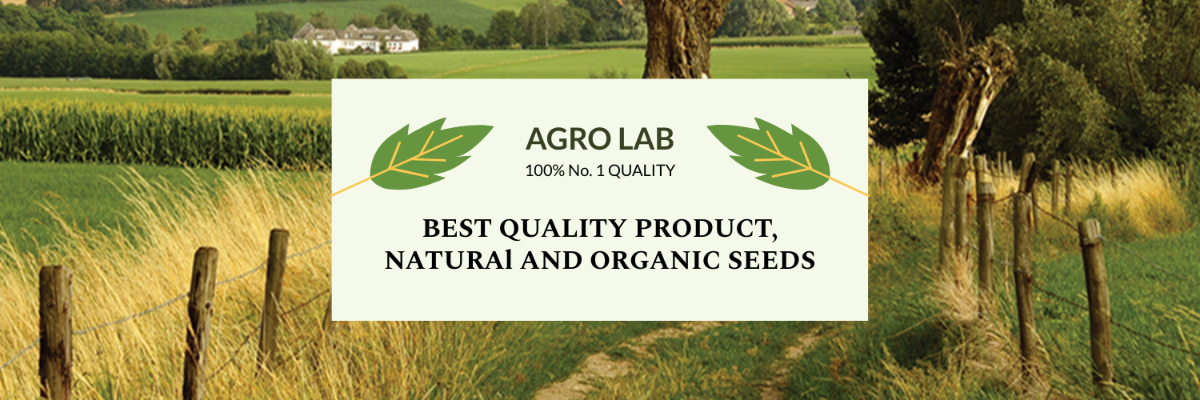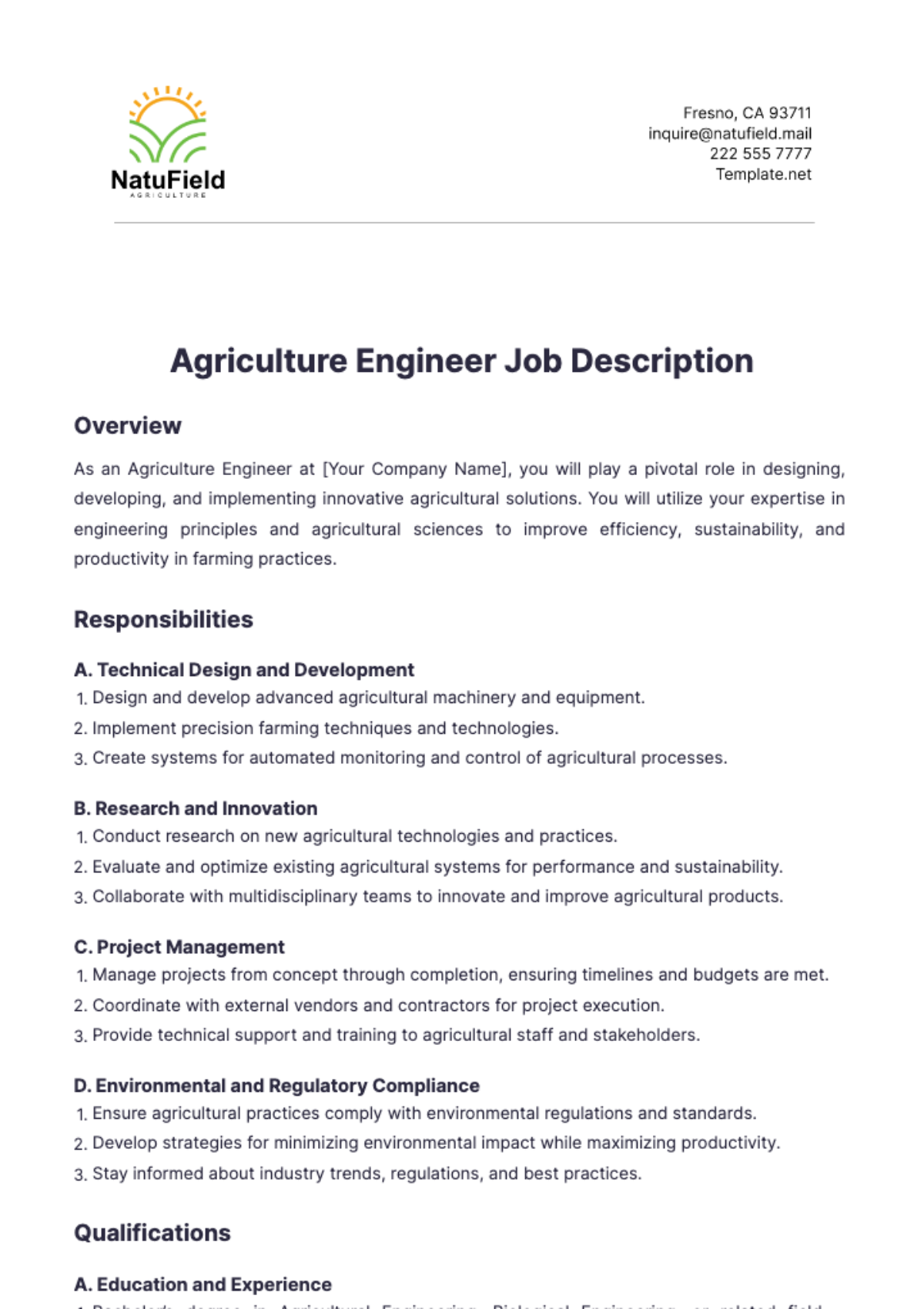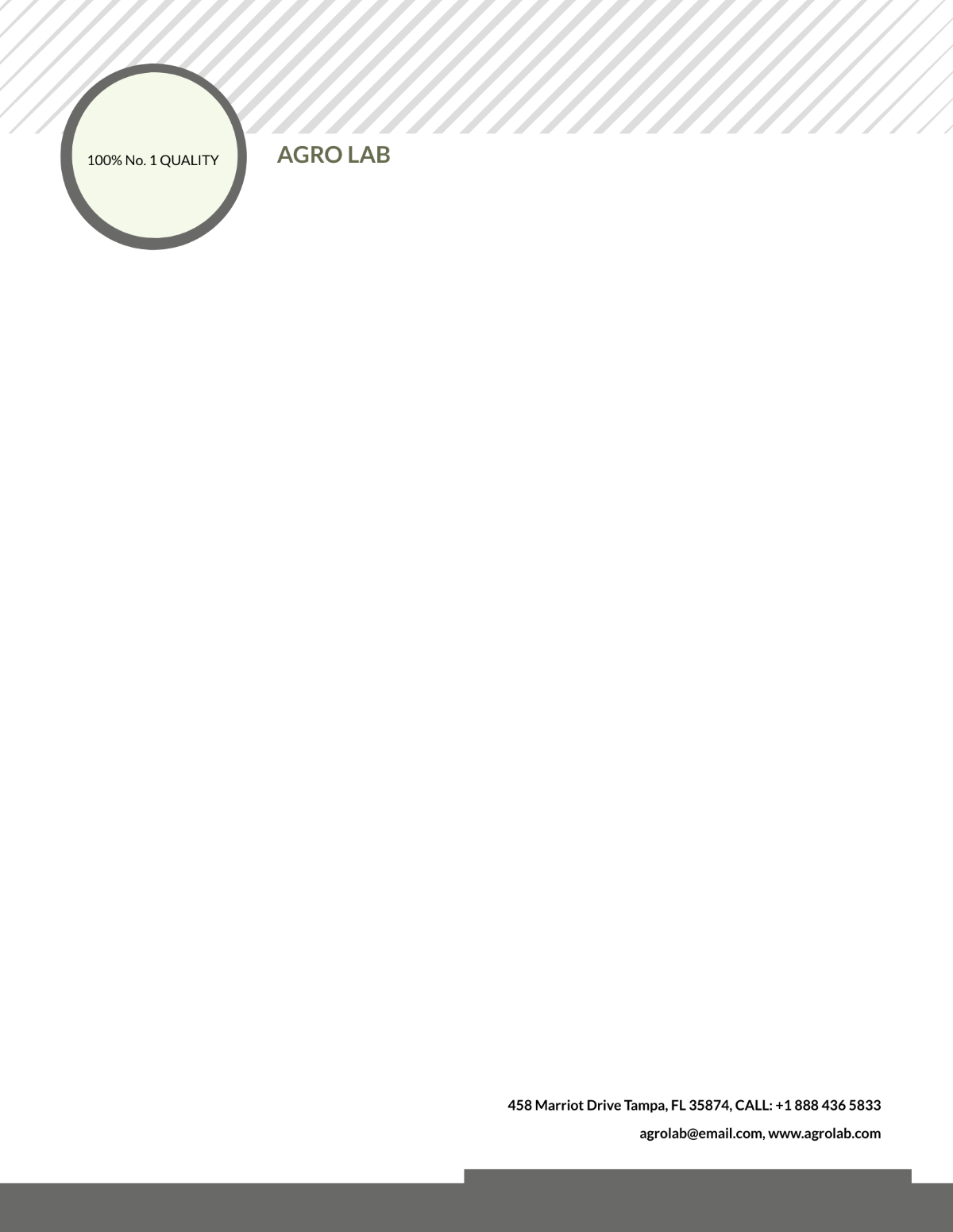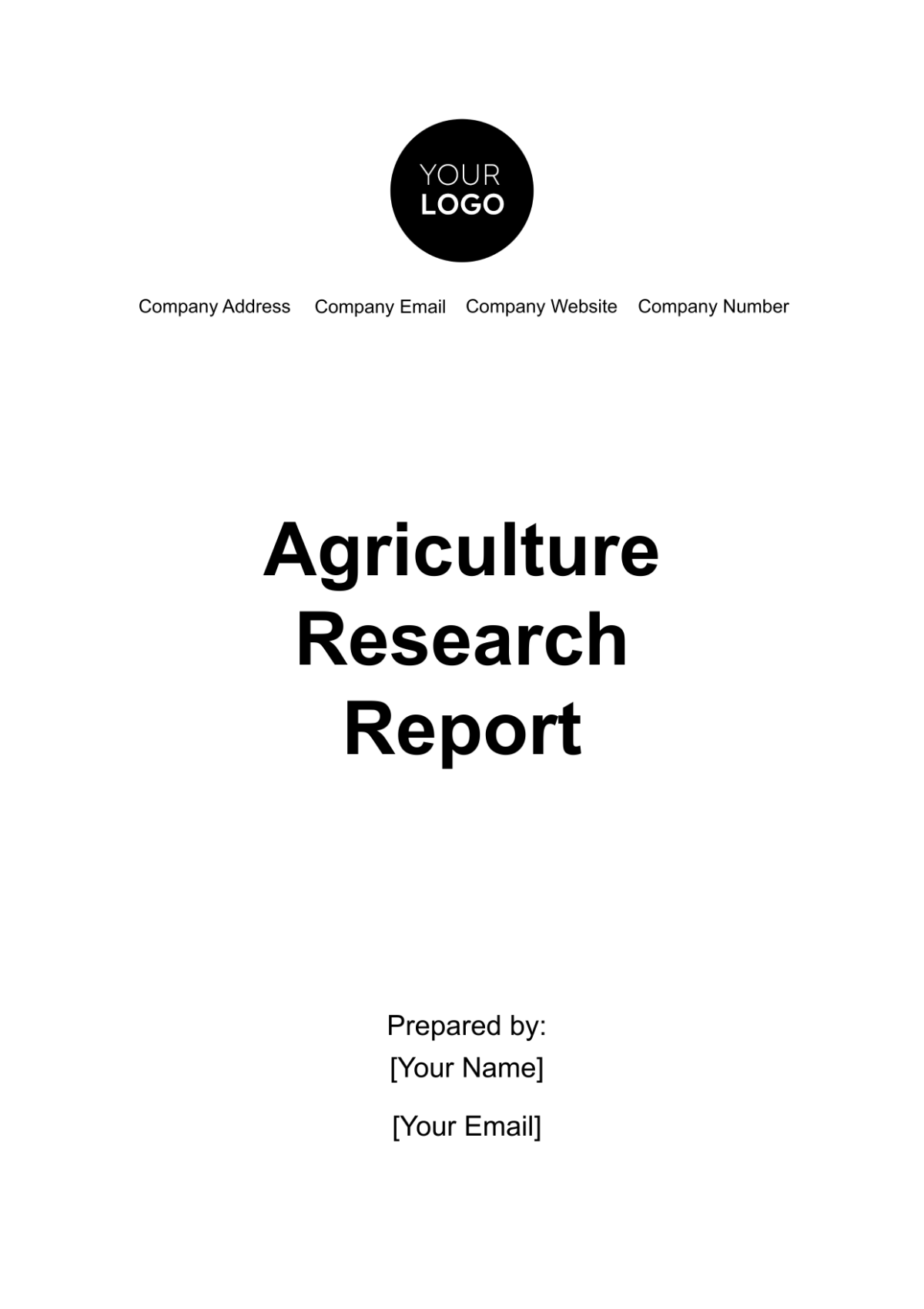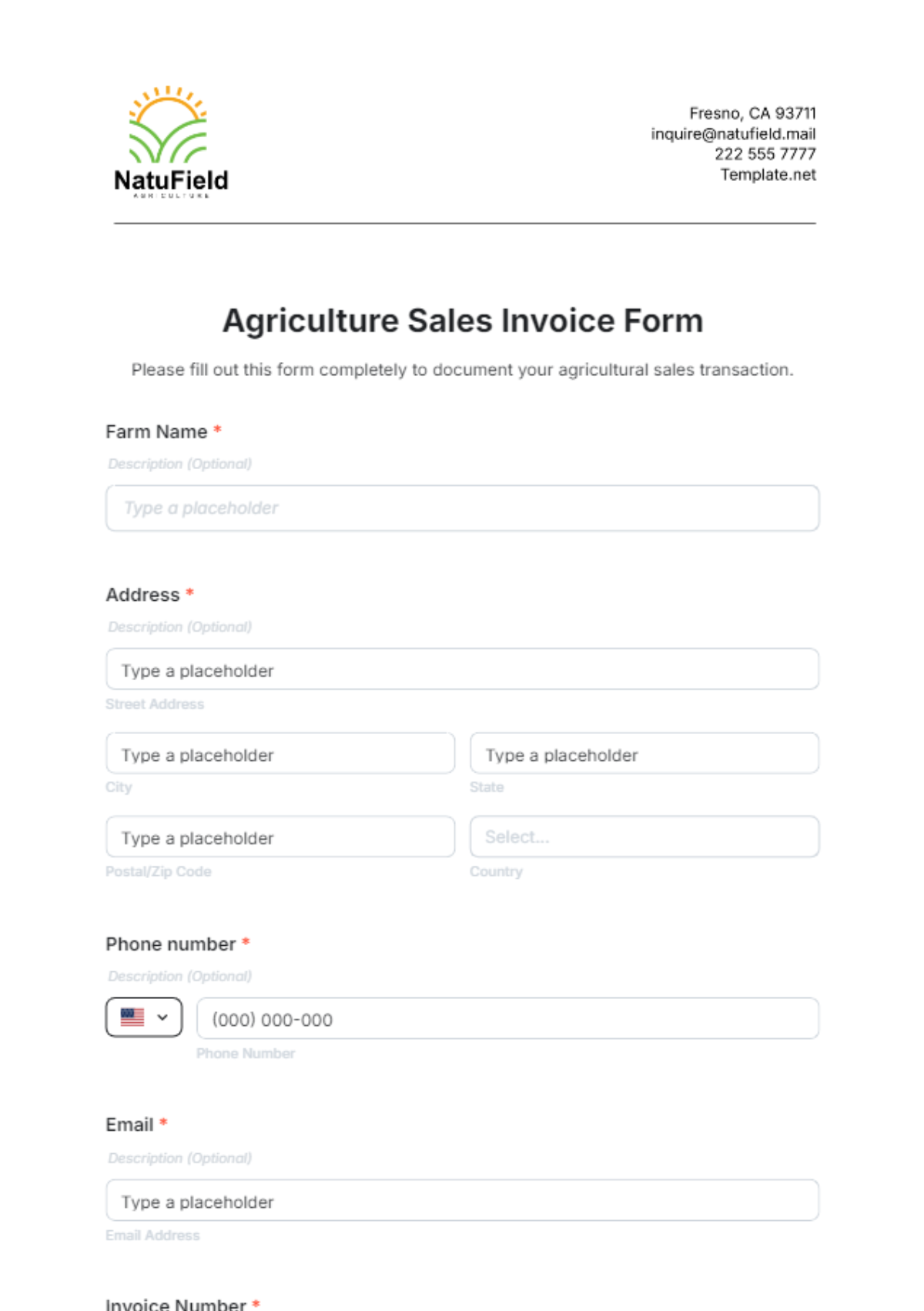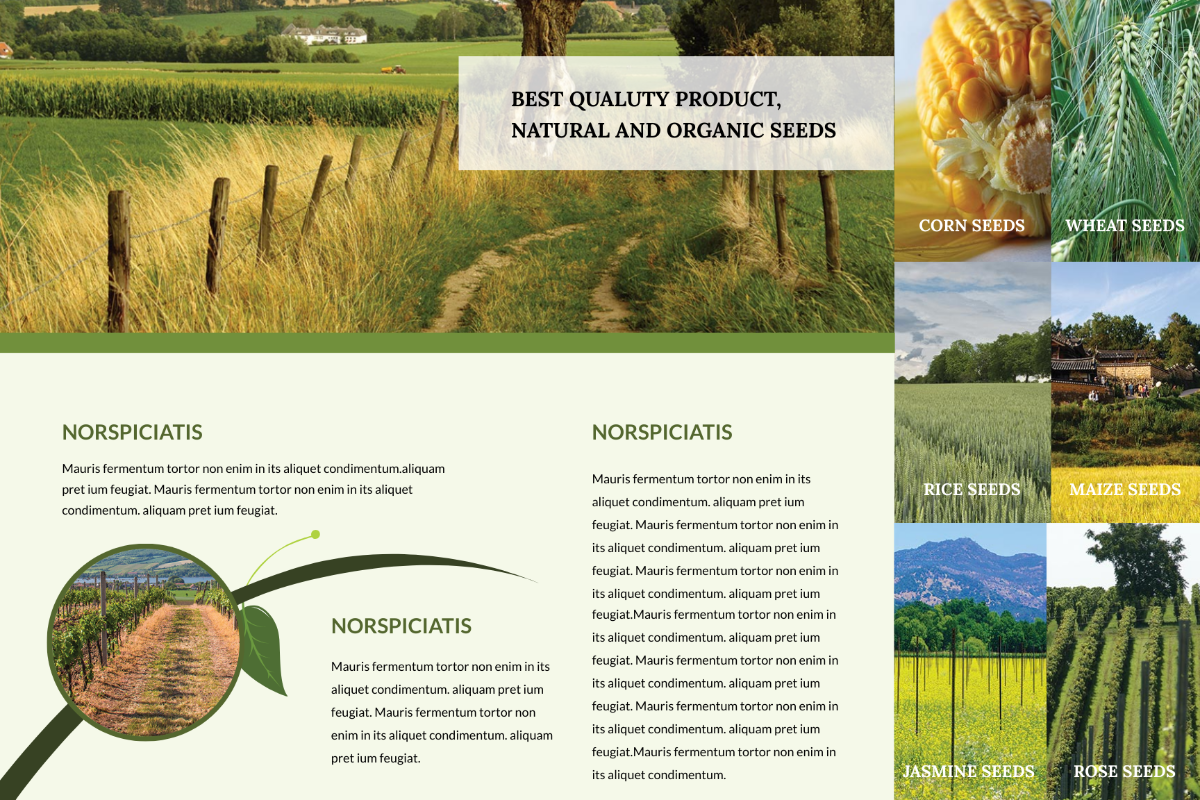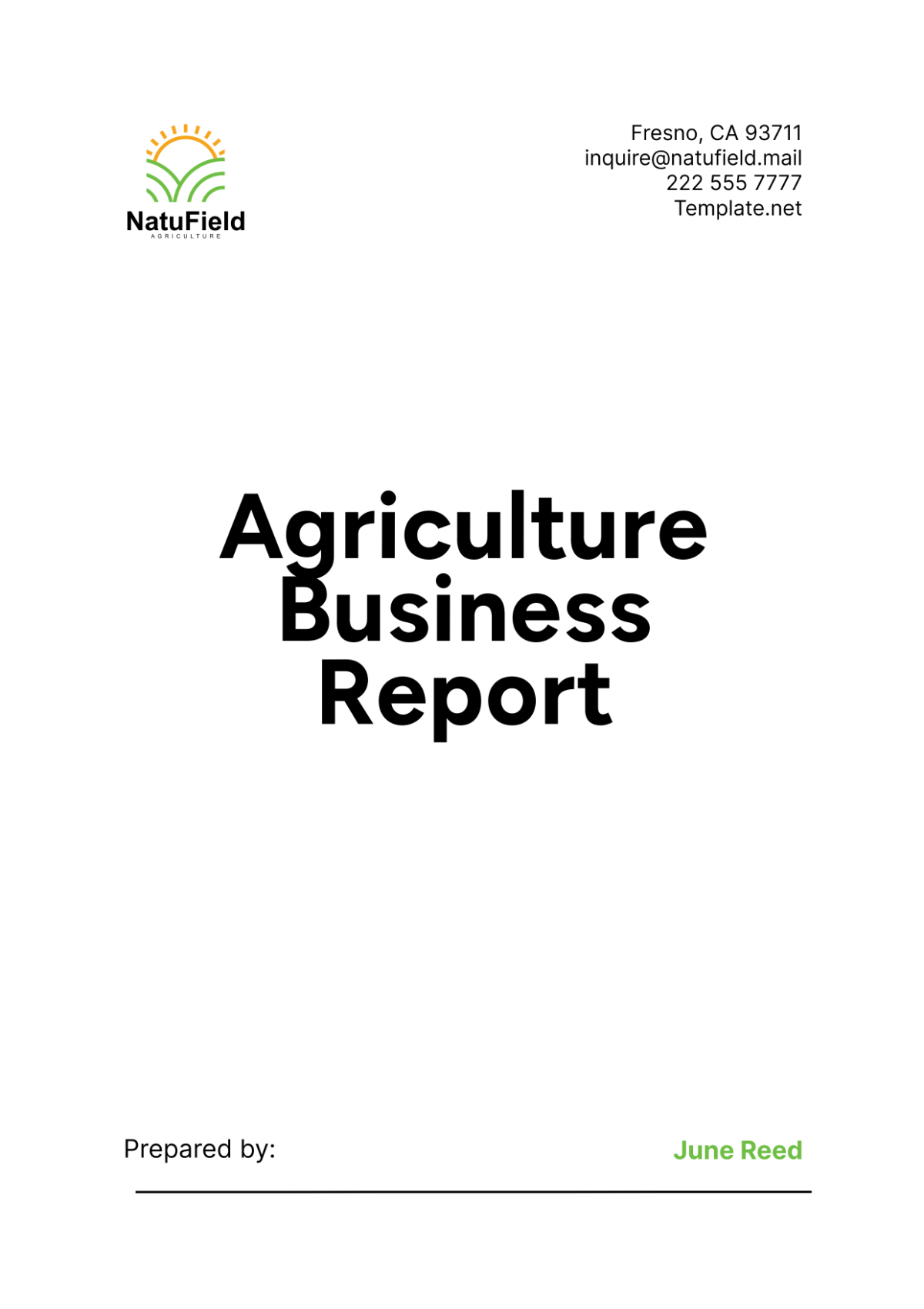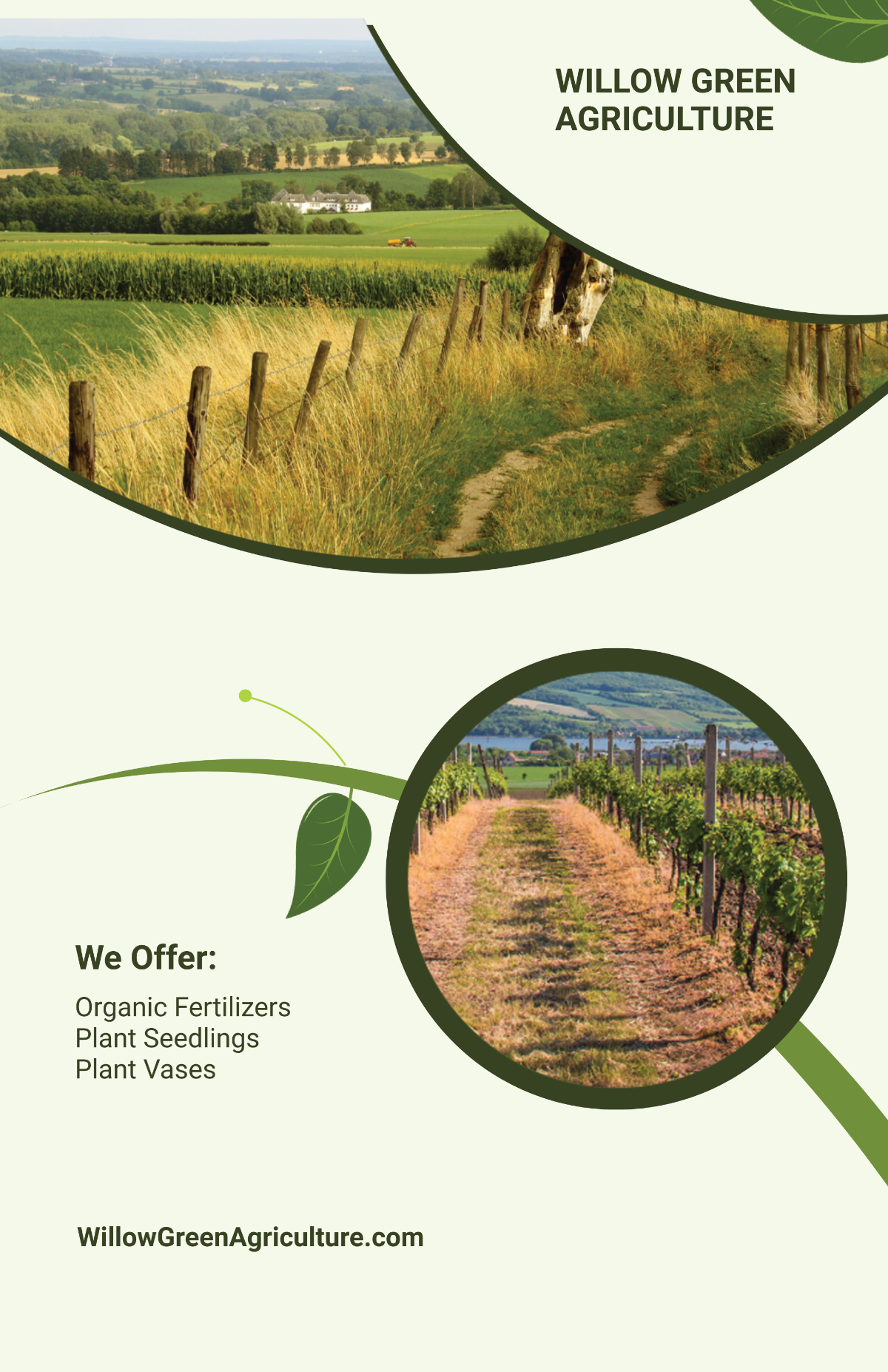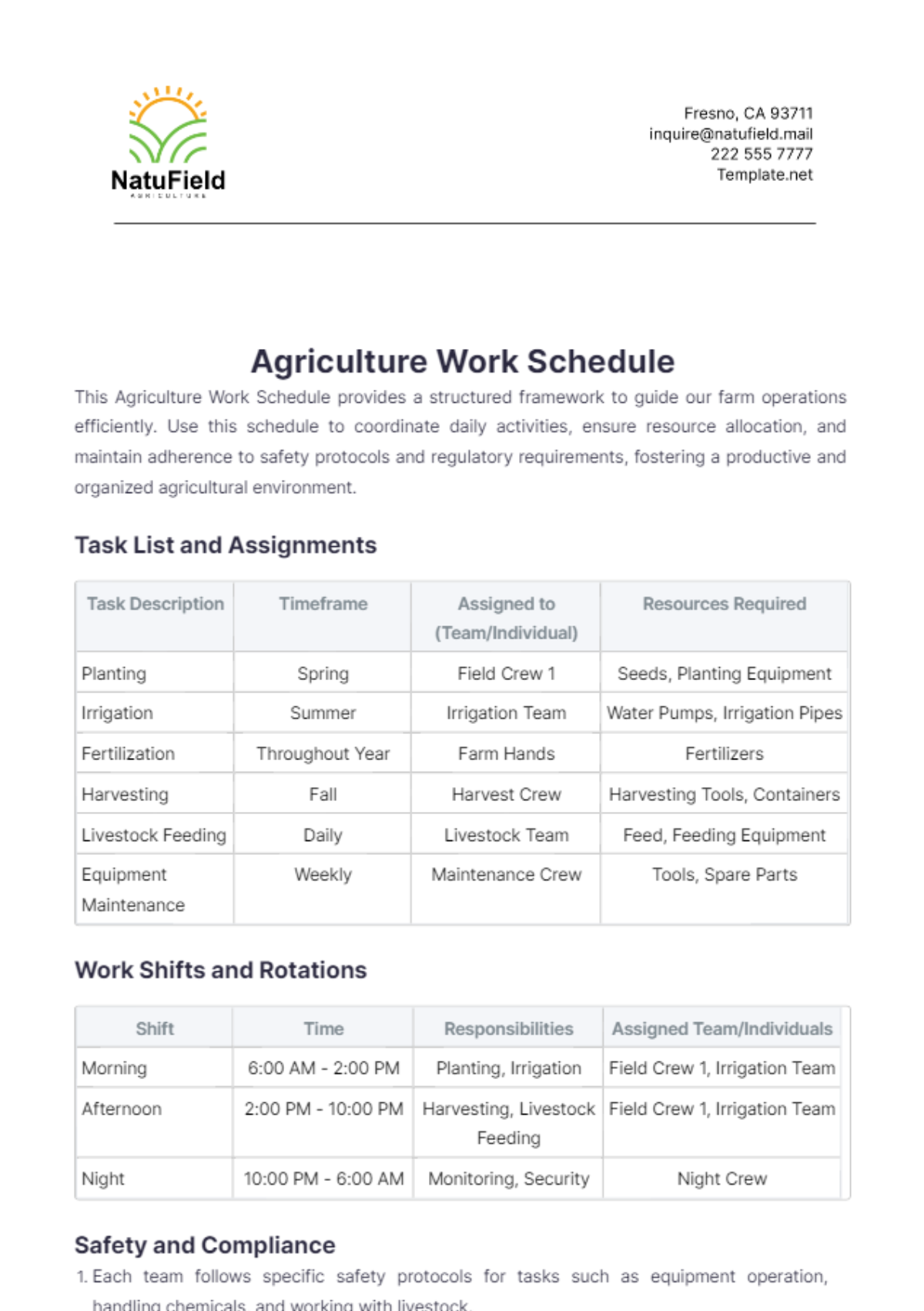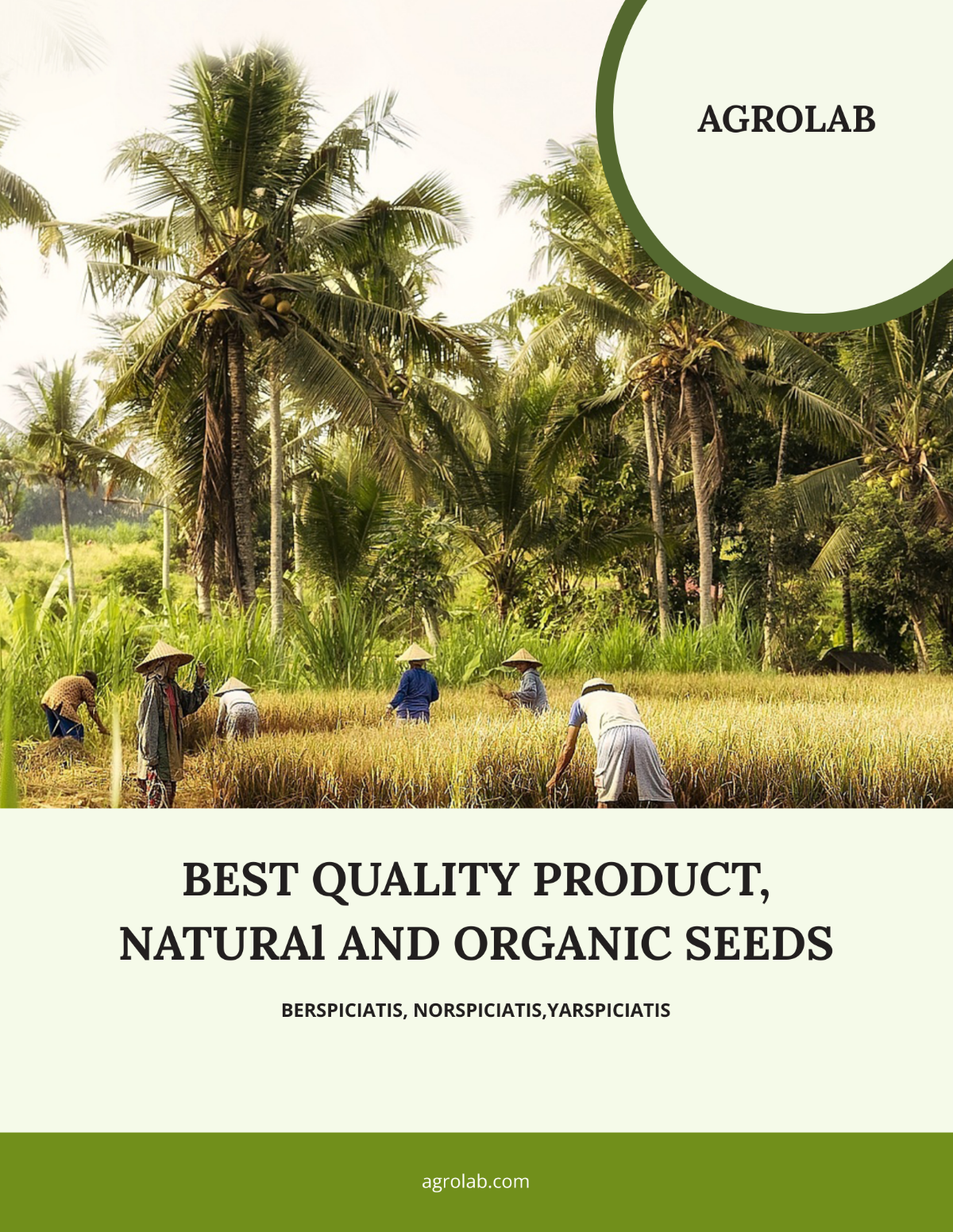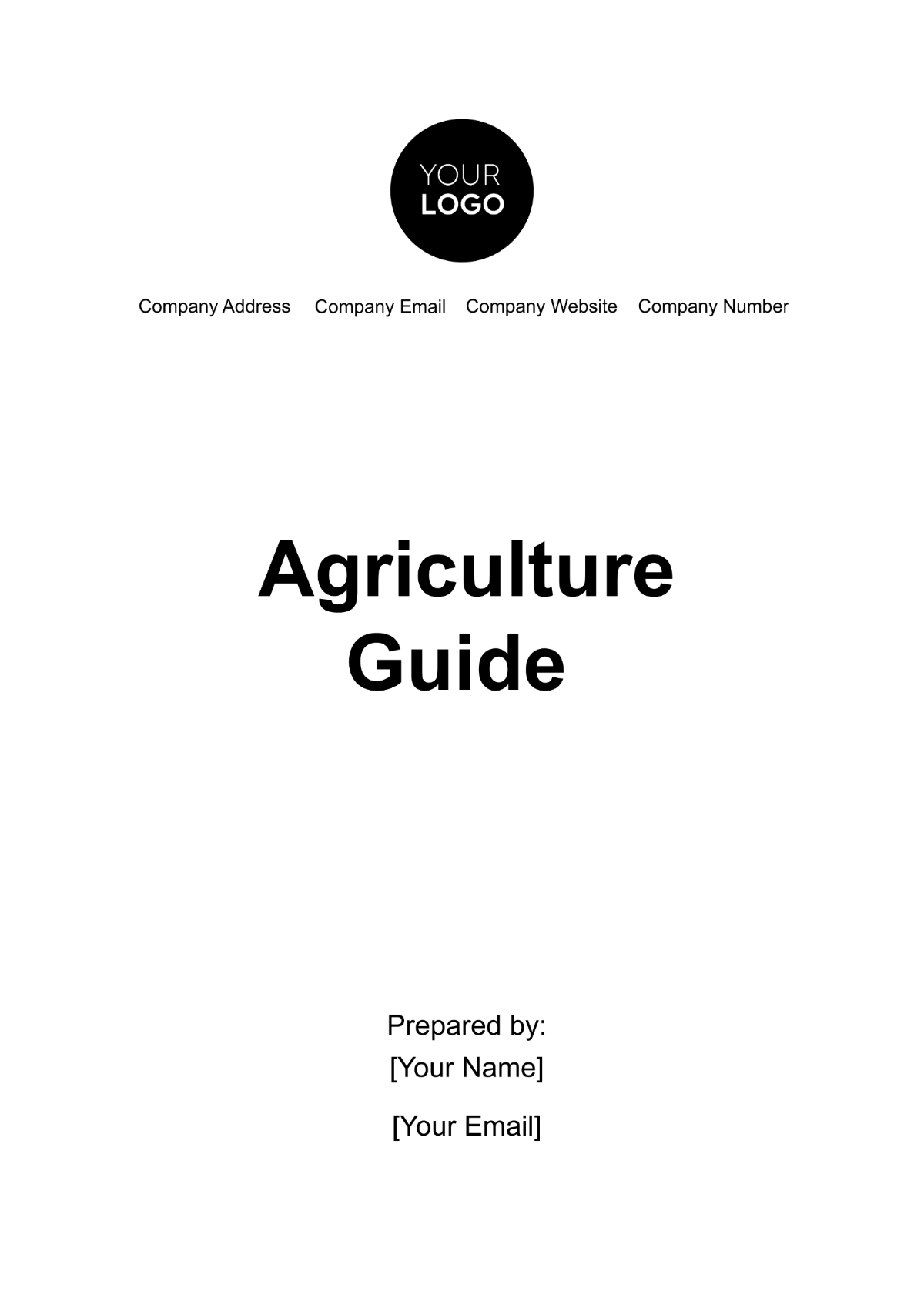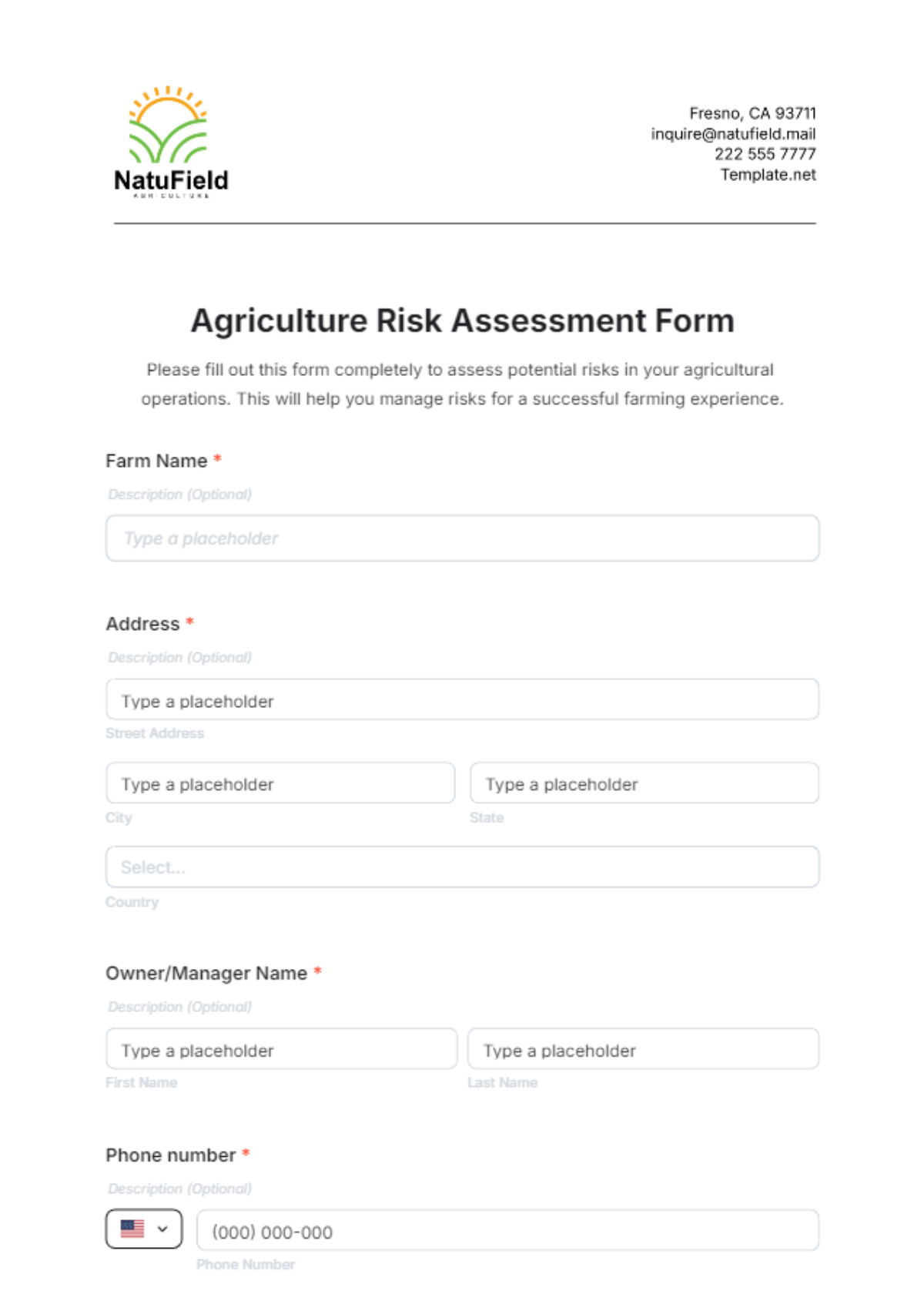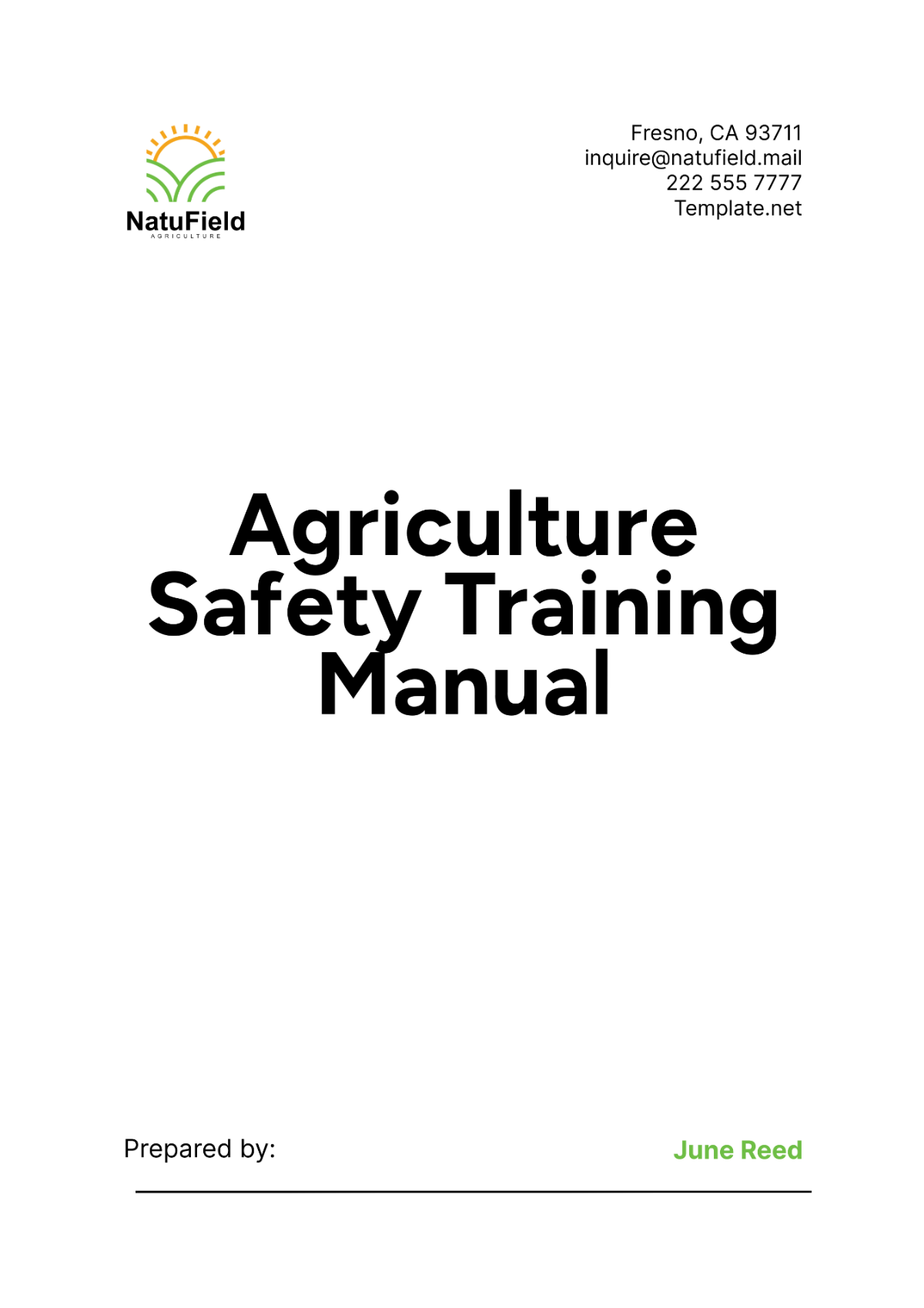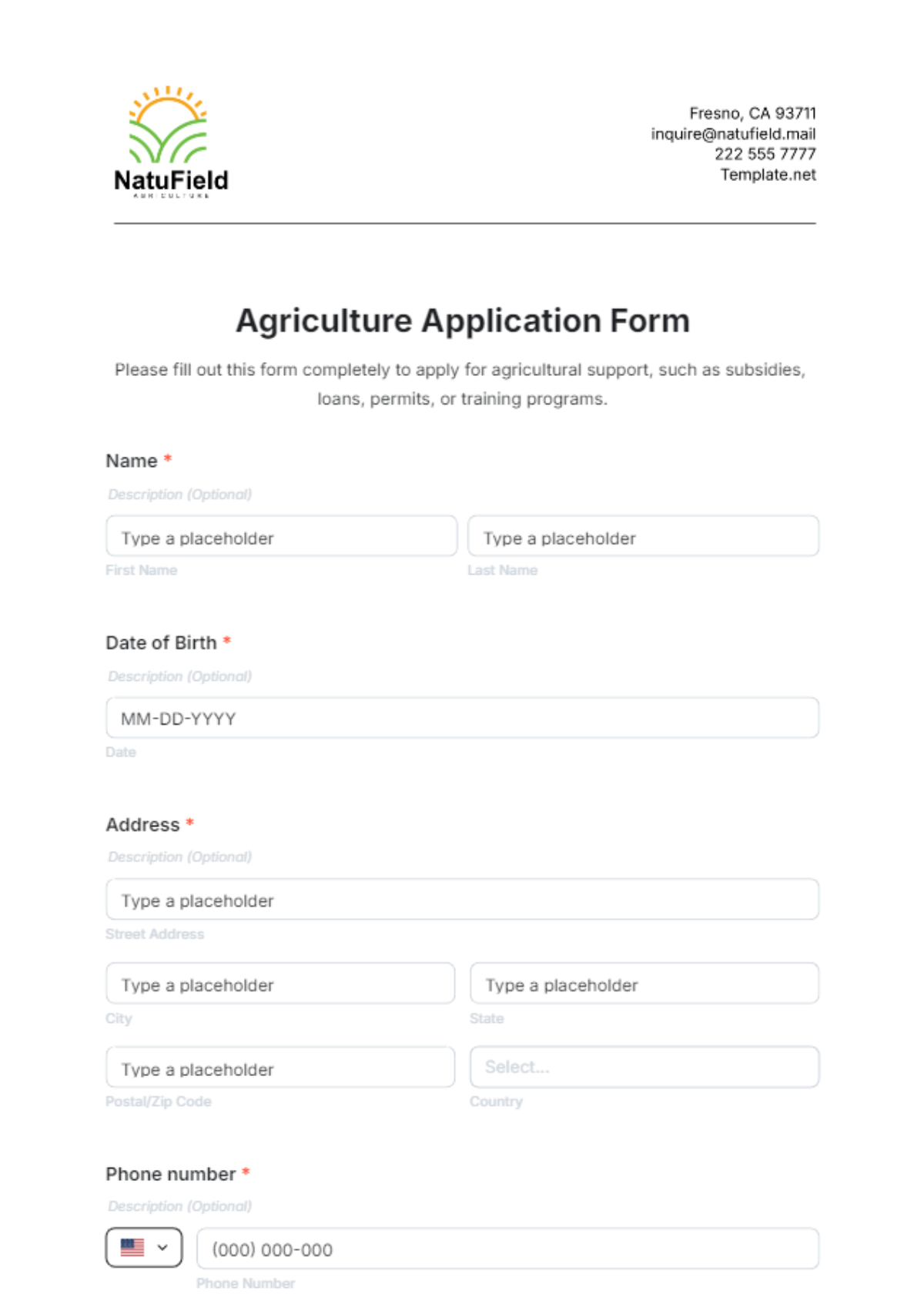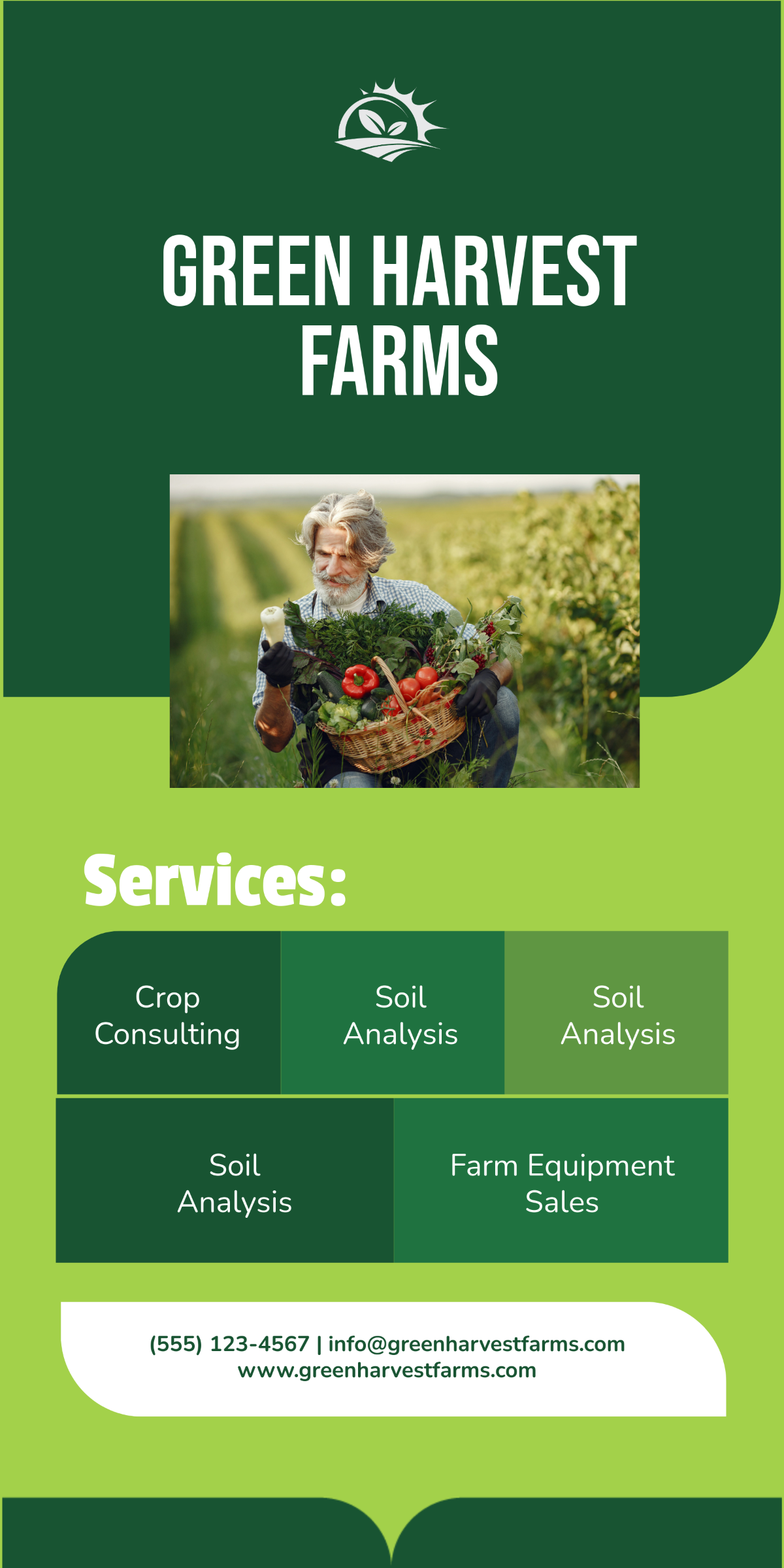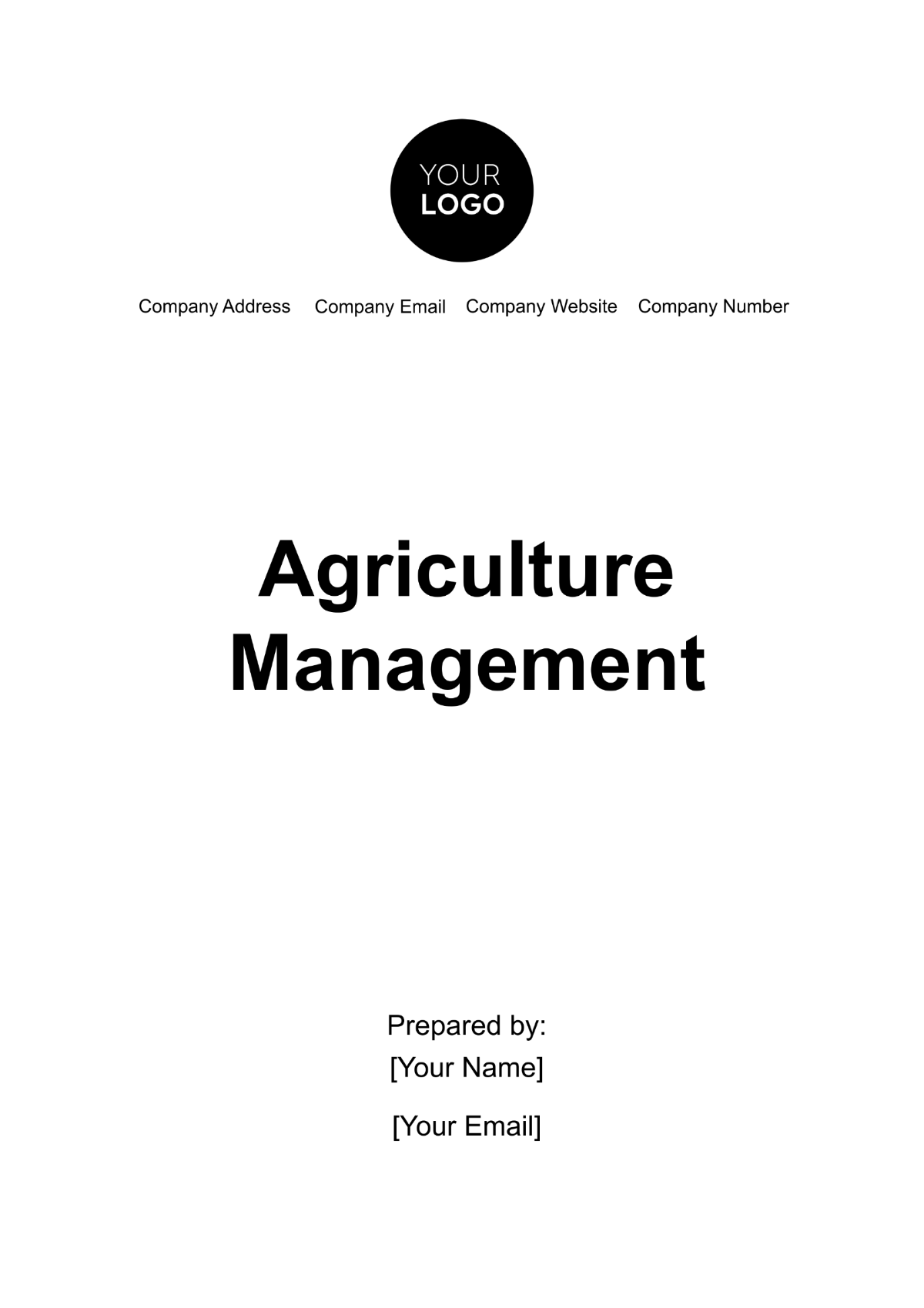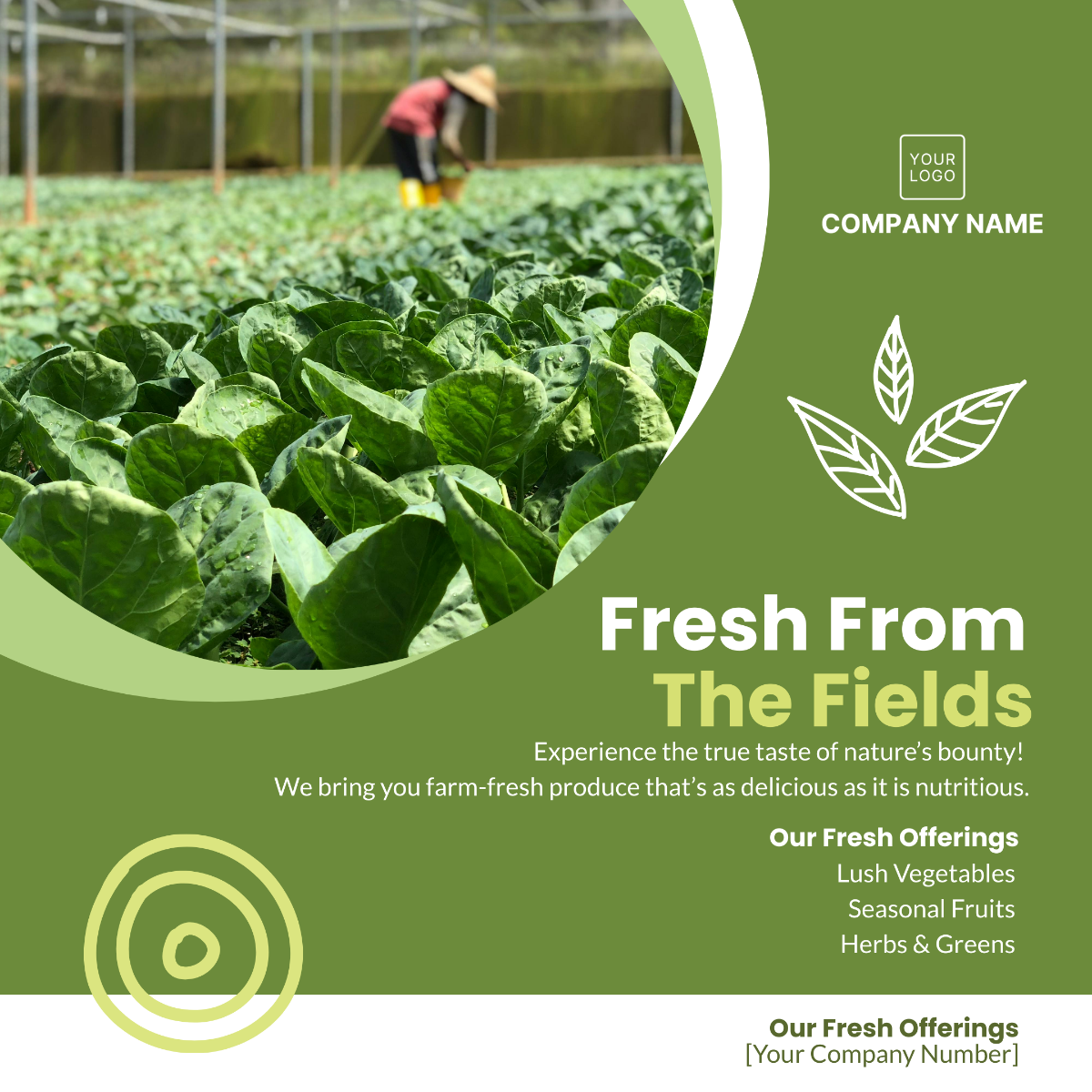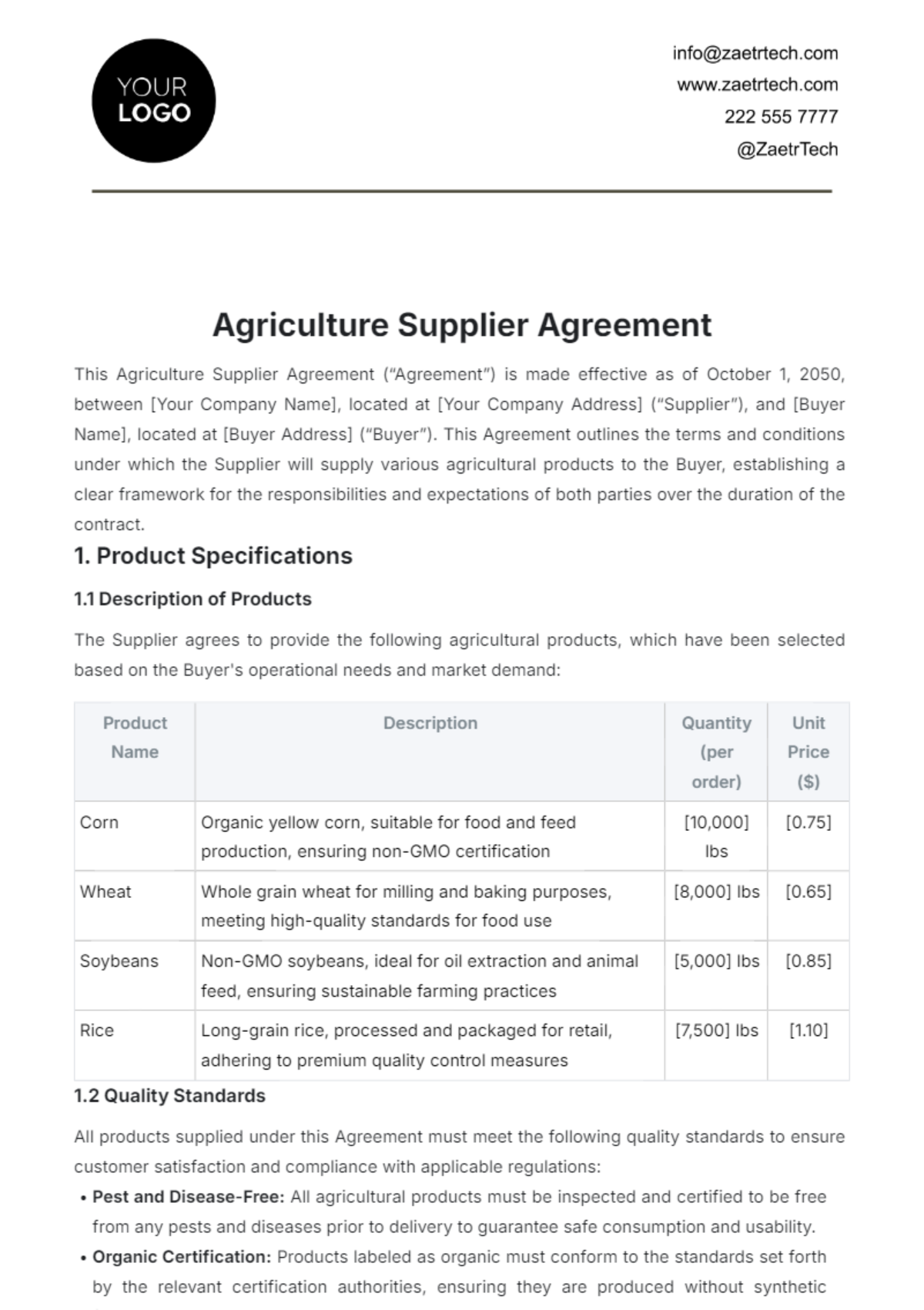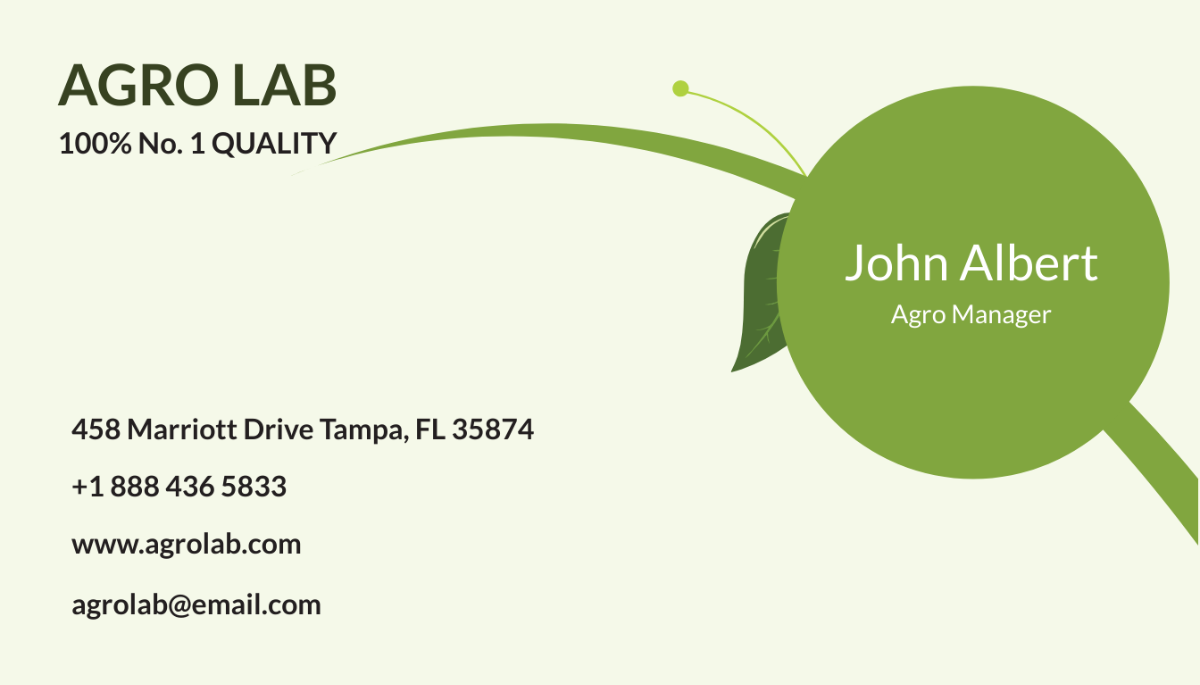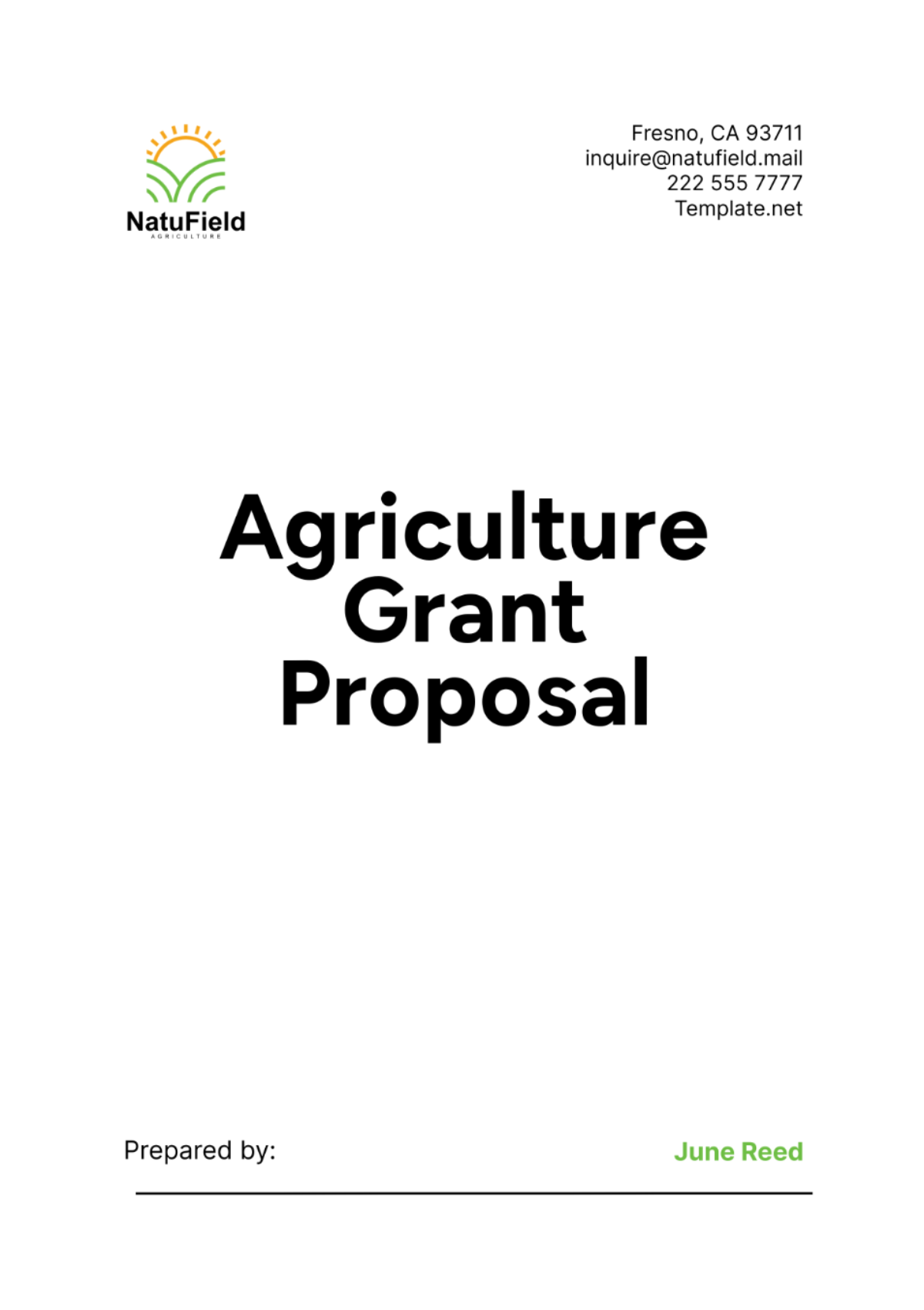Free Agriculture Green Procurement Protocol
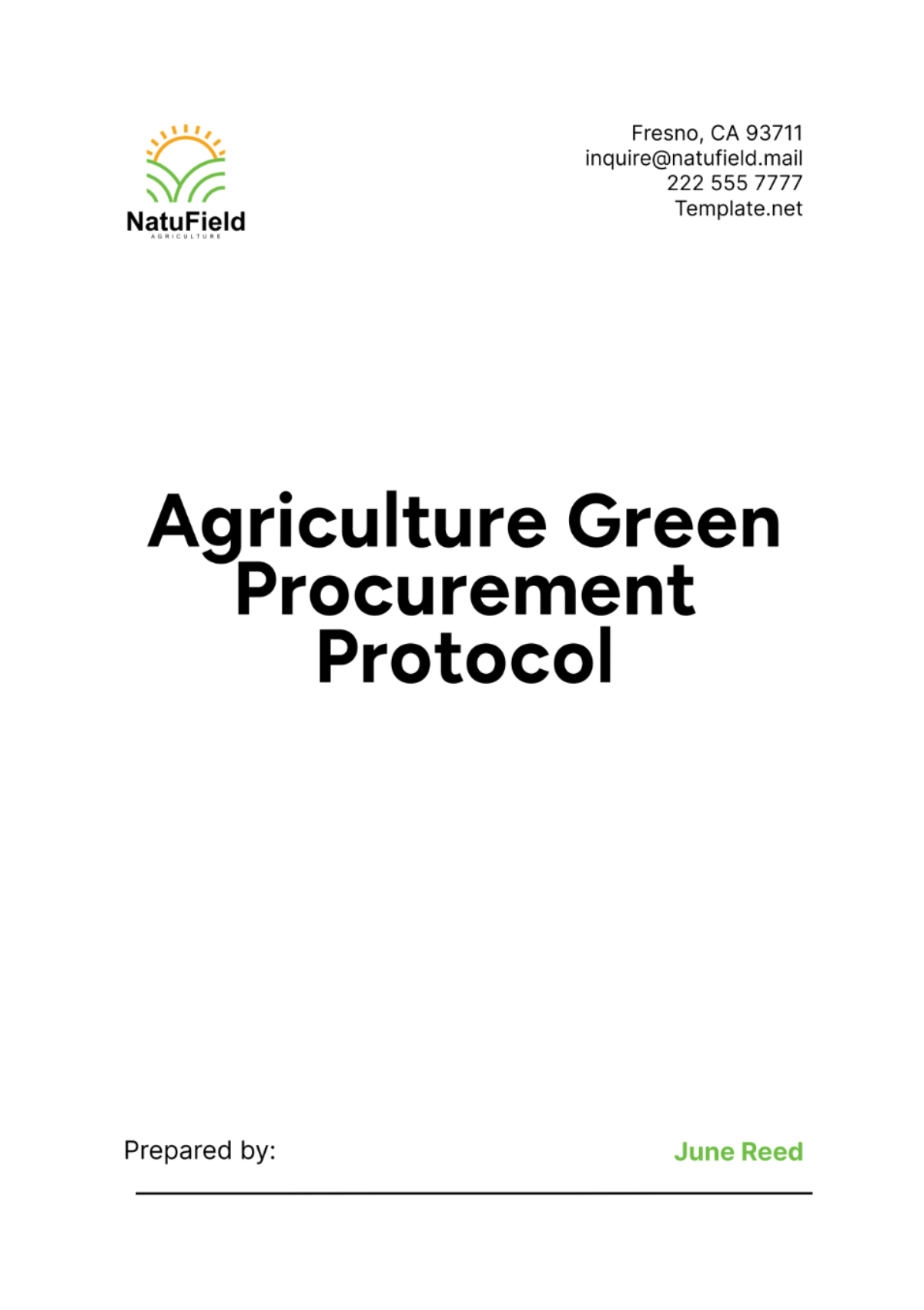
- 100% Customizable, free editor
- Access 1 Million+ Templates, photo’s & graphics
- Download or share as a template
- Click and replace photos, graphics, text, backgrounds
- Resize, crop, AI write & more
- Access advanced editor
Discover the Agriculture Green Procurement Protocol Template on Template.net, your go-to resource for editable and customizable templates. Designed with efficiency in mind, this template empowers you to tailor sustainable procurement practices to your agricultural operations effortlessly. With intuitive features and an AI Editor Tool, achieving environmental stewardship through green procurement has never been more accessible.
You may also like
Agriculture Green Procurement Protocol
I. Introduction
A. Purpose of the Protocol
[Your Company Name]'s Agriculture Green Procurement Protocol aims to standardize our procurement practices to prioritize suppliers and products that uphold rigorous environmental standards. By integrating green procurement principles, we aim to mitigate our ecological footprint and contribute to sustainable agricultural practices regionally and globally. This protocol serves as a guiding framework to align procurement decisions with our commitment to environmental stewardship and resource conservation.
B. Importance of Green Procurement in Agriculture
Green procurement is essential for advancing our sustainability goals in agriculture. By sourcing products from environmentally responsible suppliers, we minimize the impact of agricultural activities on ecosystems, reduce greenhouse gas emissions, and enhance soil health. Moreover, embracing green procurement strengthens our resilience to climate change impacts and fosters partnerships with suppliers who share our values of sustainability and ethical business practices.
C. Scope of the Protocol
This protocol applies across all stages of our agricultural procurement process, from initial supplier selection to contract management and performance evaluation. It encompasses a wide range of agricultural inputs, including seeds, fertilizers, pesticides, machinery, and services. By setting clear criteria and standards, we ensure that every procurement decision contributes to our overarching sustainability objectives and supports the long-term viability of our agricultural operations.
II. Policy Framework
A. Overview of Sustainable Agriculture Goals
Our sustainable agriculture goals encompass enhancing biodiversity, promoting soil health, conserving water resources, and reducing our carbon footprint. These goals guide our procurement strategy to prioritize suppliers and products that align with these environmental priorities.
Through the incorporation of sustainable practices within our procurement decision-making process, our objective is to cultivate agricultural systems that are not only highly resilient and consistently productive but also conscientiously respectful toward the environment.
B. Legal and Regulatory Considerations
Compliance with local and international environmental regulations is fundamental to our green procurement strategy. We ensure adherence to standards such as organic certifications, fair trade practices, and environmental impact assessments.
Moreover, we actively promote and support the implementation of policies that encourage and facilitate sustainable agricultural practices. Furthermore, we engage in close collaboration with various regulatory bodies to ensure the endorsement and adherence to responsible procurement practices within the entire industry.
C. Commitment to Environmental Stewardship
Our commitment to environmental stewardship extends beyond compliance to proactive initiatives that promote sustainable agriculture. We prioritize suppliers who demonstrate transparency in their environmental practices, innovate in resource efficiency, and engage in community and biodiversity conservation efforts.
When we focus on fostering partnerships that are grounded in shared environmental values, we not only enhance the resilience and robustness of our supply chain but also make a positive and meaningful contribution to the communities in which our operations are based. Through these collaborative efforts, we are able to build a more sustainable and supportive network that benefits both our business and the broader community.
III. Green Procurement Criteria
A. Criteria for Supplier Selection
Environmental Certification Requirements
We require that our suppliers possess well-regarded environmental certifications, specifically from organizations such as [Company A], [Company B], or [Company C]. These certifications are essential as they confirm the suppliers' dedication to implementing and maintaining sustainable agricultural practices, preserving biodiversity, and upholding social responsibility standards. Our selection process favors those suppliers who are proactive in seeking these certifications and who continually show progress in enhancing their environmental performance.
Sustainable Farming Practices
We have a preference for suppliers who adopt and implement sustainable farming methods. These methods include agroecology, permaculture, and integrated pest management, commonly known as IPM. By adopting such practices, suppliers can significantly decrease their dependence on synthetic inputs. Furthermore, these techniques foster natural pest control and contribute to the enhancement of soil fertility and overall resilience. Our suppliers are also encouraged to embrace practices that help mitigate soil erosion. In addition, we emphasize the importance of conserving water resources and promoting biodiversity within their agricultural landscapes. By aligning with these principles, suppliers not only contribute to sustainability but also ensure the long-term health and productivity of their farming ecosystems.
Use of Integrated Pest Management (IPM)
Suppliers are required to employ IPM strategies that prioritize biological controls, crop rotation, and cultural practices over chemical pesticides. This approach minimizes environmental impacts, protects beneficial insects and wildlife, and reduces risks to human health associated with pesticide exposure.
Our organization is dedicated to assisting suppliers in their journey towards adopting Integrated Pest Management (IPM) practices. We provide comprehensive support by offering detailed training programs, expert technical assistance, and various incentives that encourage the implementation of sustainable pest management techniques.
B. Product-Specific Requirements
Organic and Fair Trade Standards
Agricultural products, such as fruits, vegetables, and coffee, must meet certified organic and Fair Trade standards. These standards ensure the absence of synthetic chemicals, promote fair compensation for farmers, and uphold social and economic equity in agricultural supply chains. By sourcing organic and Fair Trade certified products, we support sustainable livelihoods for farmers and contribute to global efforts for ethical sourcing practices.
Reduced Chemical Input Requirements
We impose strict limits on the use of chemical inputs, including fertilizers, herbicides, and insecticides, to minimize environmental contamination and protect ecosystem health. Suppliers are encouraged to adopt alternative methods, such as biological controls and organic amendments, to reduce reliance on synthetic chemicals. By reducing chemical inputs, we safeguard water quality, promote soil fertility, and support agricultural practices that are resilient to climate change impacts.
Carbon Footprint Reduction Goals
Suppliers are encouraged to quantify and reduce their carbon footprint associated with agricultural production and transportation. We collaborate with suppliers to implement measures such as energy-efficient practices, renewable energy adoption, and carbon sequestration initiatives. By reducing greenhouse gas emissions across our supply chain, we contribute to climate change mitigation efforts and promote sustainable agricultural practices that prioritize environmental stewardship.
IV. Procurement Process
A. Supplier Evaluation and Selection
Prequalification Criteria
Potential suppliers are subjected to a thorough and meticulous evaluation process, which thoroughly examines their compliance with our established green procurement criteria. This is only one aspect of our comprehensive assessment, as we also rigorously scrutinize their financial stability to ensure that they possess a robust and resilient economic foundation. Additionally, we evaluate the suppliers' operational capacity to ascertain whether they are equipped to meet our stringent sustainability requirements. As part of this evaluation process, we meticulously review a variety of factors.
Initially, we evaluate the suppliers' environmental certifications to confirm they meet required standards of environmental responsibility; next, we scrutinize their sustainability policies for signs of a strong commitment to sustainable operations. Additionally, we review their historical practices in sustainable agriculture to assess their long-term adherence to sustainability standards. This thorough assessment process helps us choose suppliers that support our sustainability goals.
Supplier Performance Metrics
The evaluation of our suppliers' overall environmental impact, product quality, and their adherence to established sustainability standards heavily relies on a comprehensive set of performance metrics, which are indispensable for such assessments. We've identified several key metrics to scrutinize our suppliers' operations effectively. These include the efficiency with which they utilize resources, their waste management practices, and their compliance with environmental regulations. By closely monitoring these aspects, we can ensure that our suppliers align with our stringent expectations for sustainability.
Suppliers who continually strive for improvement and exhibit innovation in sustainable practices are favored in our procurement process, reflecting our commitment to a high-quality and eco-conscious supply chain. This method ensures we partner with suppliers dedicated to enhancing their sustainability, thus supporting our broader environmental objectives.
B. Contractual Obligations
Environmental Performance Targets
The agreements we establish with our suppliers incorporate detailed and specific environmental performance objectives. These objectives encompass a range of reduction targets, including goals for minimizing water and energy consumption, decreasing the generation of waste, and cutting down on greenhouse gas emissions. In order to ensure that these environmental targets are being met and that our suppliers are in compliance with our overarching sustainability goals, we conduct regular audits and performance reviews. This systematic monitoring process allows us to track progress, identify areas for improvement, and maintain alignment with our commitments to environmental sustainability.
Compliance with Sustainability Standards
Suppliers are contractually obligated to comply with our established sustainability standards throughout the contract duration. Compliance requirements include timely reporting of environmental data, participation in sustainability initiatives, and transparency in supply chain practices. Non-compliance may result in corrective actions or termination of contracts, emphasizing our commitment to maintaining high environmental standards across our supply chain.
V. Monitoring and Evaluation
A. Performance Monitoring
Data Collection and Reporting
We employ robust data collection methods to track key performance indicators (KPIs) related to environmental impact, resource use efficiency, and supplier compliance with sustainability criteria. Regular reporting ensures transparency and accountability in our procurement practices, enabling informed decision-making and continuous improvement initiatives.
Key Performance Indicators (KPIs)
KPIs include metrics such as carbon emissions per unit of product, water usage efficiency, adoption of sustainable farming practices, and supplier diversity in environmental certifications. These indicators serve as benchmarks to gauge progress towards our sustainability goals and identify areas for further enhancement in environmental performance.
B. Continuous Improvement Strategies
Feedback Mechanisms
We establish feedback loops with suppliers, stakeholders, and internal teams to gather insights, address challenges, and implement best practices in sustainable procurement. Collaborative feedback mechanisms promote innovation, foster supplier engagement, and strengthen our ability to adapt to changing environmental conditions and market dynamics.
Review and Update Procedures
The protocol undergoes regular review and updates to incorporate advancements in sustainable agriculture, regulatory changes, and feedback from stakeholders. Revision processes are guided by stakeholder consultations, industry best practices, and scientific research to ensure the protocol remains effective and relevant in achieving our sustainability objectives.
VI. Stakeholder Engagement
A. Collaboration with Suppliers
Supplier Education and Training
Our organization provides a comprehensive range of educational workshops, extensive training programs, and valuable resources designed to support suppliers in the adoption and continued practice of sustainable agriculture methods. Through these initiatives, we are dedicated to enhancing the capacity of our suppliers by offering in-depth instruction and guidance in crucial areas such as organic farming techniques, Integrated Pest Management (IPM) strategies, and effective environmental management systems. By doing so, we aim to foster long-term sustainability partnerships that contribute to the enduring success and environmental responsibility of our agricultural community.
Joint Sustainability Initiatives
Collaborative projects with suppliers focus on implementing innovative sustainability initiatives, such as soil health improvement programs, biodiversity conservation projects, and carbon sequestration efforts. These joint initiatives aim to demonstrate leadership in sustainable procurement, drive industry-wide change, and contribute positively to environmental and community outcomes.
B. Outreach to Agricultural Community
Farmer Participation Programs
We engage local farmers through participatory programs that promote knowledge sharing, skill development, and adoption of sustainable agricultural practices. By empowering farmers with resources and support, we enhance their resilience to environmental challenges and promote sustainable livelihoods within agricultural communities.
Public Awareness Campaigns
Public outreach initiatives raise awareness about the benefits of green procurement, our commitment to environmental stewardship, and the importance of supporting sustainable agriculture. These campaigns educate consumers, stakeholders, and the broader community about our sustainability initiatives, encouraging informed purchasing decisions that prioritize environmental sustainability.
VII. Implementation Plan
A. Timeline for Protocol Rollout
The Agriculture Green Procurement Protocol will be phased in over a [Timeline] period, beginning with pilot projects in key supply chains and expanding to encompass all procurement categories by [Date]. This phased approach allows for gradual implementation, stakeholder engagement, and refinement of protocols based on initial outcomes and feedback.
B. Resource Allocation and Budgeting
Resource allocation includes provisions for training, technology investments, and certification costs associated with sustainable procurement practices. Budgetary planning ensures adequate financial support for protocol implementation, compliance monitoring, and continuous improvement initiatives across our agricultural operations.
C. Risk Management Strategies
Proactive risk management strategies address potential challenges such as supply chain disruptions, regulatory changes, and environmental uncertainties. Contingency planning, risk assessments, and business continuity measures mitigate risks associated with sustainable procurement, safeguarding our operations and enhancing resilience in a dynamic agricultural landscape.
VIII. Conclusion
A. Summary of Benefits
[Your Company Name]'s Agriculture Green Procurement Protocol represents our commitment to environmental stewardship, sustainable agriculture, and responsible sourcing practices. By prioritizing suppliers and products that meet stringent sustainability criteria, we enhance ecosystem health, mitigate climate impacts, and promote social responsibility throughout our supply chain. This protocol underscores our dedication to fostering a resilient and sustainable agricultural sector for future generations.
B. Future Outlook for Green Procurement in Agriculture
Looking ahead, we envision a future where sustainable procurement practices are integral to global food security, environmental conservation, and community well-being. Through ongoing innovation, collaboration with stakeholders, and continuous improvement efforts, we aim to lead by example in promoting sustainable agriculture and shaping a more sustainable future for agriculture worldwide.
